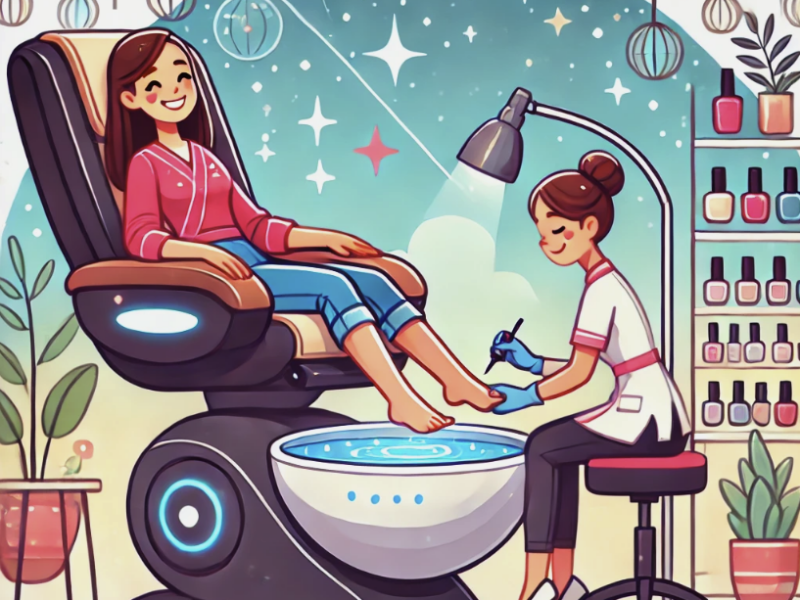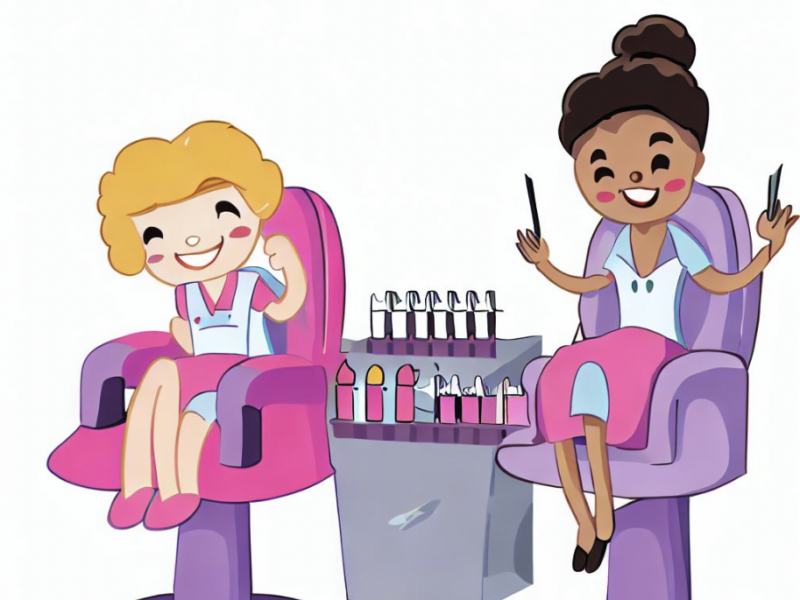Biting nails is a common habit that affects people of all ages.
It can be a result of stress, anxiety, boredom, or even a subconscious behavior.
While nail biting may seem harmless, it can have negative consequences on both your physical and mental health.
Below we look at effective strategies and techniques to help you break the habit and achieve healthier nails.
The Consequences of Nail Biting
Nail biting can have several negative effects on your overall well-being.
Here are some of the consequences:
- Damaged nails: Constant biting can lead to weak, brittle, and uneven nails. It can also cause the nail bed to become infected.
- Oral health issues: Biting nails can damage your teeth, leading to chipped enamel or misalignment.
- Infections: The bacteria present on your hands can enter your mouth through nail biting, increasing the risk of infections.
- Social stigma: Nail biting can be seen as a nervous habit, which may affect your self-confidence and how others perceive you.
- Spread of germs: Your hands come into contact with various surfaces throughout the day, making them a breeding ground for germs. Nail biting increases the chances of transferring these germs to your mouth.
Understanding the Root Causes
Before diving into strategies to stop nail biting, it is essential to understand the underlying causes.
Identifying the triggers can help you develop effective coping mechanisms.
Here are some common reasons why people bite their nails:
- Stress and anxiety: Nail biting often serves as a way to relieve stress or anxiety. It can provide a temporary distraction or a sense of comfort.
- Boredom or inactivity: When idle, some individuals resort to nail biting as a way to pass the time or alleviate boredom.
- Perfectionism: People with perfectionist tendencies may bite their nails due to a desire for flawlessness.
- Habitual behavior: Nail biting can become an ingrained habit that is difficult to break.
- Imitation: Children often imitate the behaviors they observe in their parents or siblings. If nail biting is prevalent in the family, children are more likely to develop the habit.
Effective Strategies to Stop Nail Biting
Now that we understand the consequences and root causes of nail biting, let’s explore some proven strategies to help you break the habit:
1. Identify triggers and develop alternative habits
Pay attention to the situations or emotions that trigger your nail biting. Once you identify them, find healthier alternatives to redirect your behavior.
For example, if stress triggers your nail biting, try deep breathing exercises or stress-relief techniques instead.
2. Keep your nails well-groomed
Trimming and filing your nails regularly can reduce the urge to bite.
Shorter nails are less tempting to bite and are less likely to cause damage if you do bite them.
3. Apply bitter-tasting nail polish
Bitter-tasting nail polishes are specifically designed to discourage nail biting.
The unpleasant taste serves as a deterrent and helps break the habit. Apply the polish regularly and reapply as needed.
4. Wear gloves or bandages
Physical barriers, such as gloves or bandages, can prevent you from biting your nails.
This strategy can be particularly useful during times when you are more prone to nail biting, such as when watching TV or working on the computer.
5. Practice stress management techniques
Since stress and anxiety are common triggers for nail biting, learning effective stress management techniques can help you break the habit.
Consider activities such as exercise, meditation, or engaging in hobbies that promote relaxation.
6. Seek support from friends and family
Inform your friends and family about your goal to stop nail biting.
Their support and encouragement can help you stay motivated and accountable.
Additionally, they can help identify instances when you are biting your nails unconsciously.
7. Use visualization and positive affirmations
Visualize yourself with healthy, beautiful nails and repeat positive affirmations to reinforce your commitment to stop nail biting.
This technique can help rewire your subconscious mind and strengthen your resolve.
8. Keep your hands occupied
Find alternative activities to keep your hands busy, especially during idle moments.
Consider using stress balls, fidget spinners, or puzzles to divert your attention away from nail biting.
9. Reward yourself for progress
Set achievable goals and reward yourself for each milestone you reach.
Treat yourself to something you enjoy or engage in a favorite activity as a way to celebrate your progress in breaking the habit.
10. Practice patience and persistence
Breaking a habit takes time and effort.
Be patient with yourself and understand that setbacks may occur.
Stay persistent and committed to your goal, and eventually, you will succeed in stopping nail biting.
How To Stop Nail Biting For GOOD!
FAQs – How to Stop Biting Nails
1. Why is nail biting a difficult habit to break?
Nail biting can be a difficult habit to break because it often serves as a coping mechanism for stress or anxiety.
Additionally, it can become an automatic behavior that is challenging to consciously control.
2. Can nail biting be a sign of an underlying mental health condition?
Yes, nail biting can be associated with underlying mental health conditions such as anxiety, obsessive-compulsive disorder (OCD), or attention deficit hyperactivity disorder (ADHD).
If you suspect an underlying condition, it is advisable to consult a healthcare professional.
3. Are there any medical treatments available to stop nail biting?
In severe cases, where nail biting becomes a compulsive behavior, medical treatments such as behavioral therapy or medication may be recommended.
Consult a healthcare professional for personalized advice.
4. Can nail biting lead to infections?
Yes, nail biting can increase the risk of infections.
Bacteria from your hands can enter your mouth through nail biting, potentially causing infections in the nail bed or surrounding skin.
5. Is nail biting more common in children or adults?
Nail biting is common in both children and adults.
It often starts in childhood and may persist into adulthood if not addressed.
6. Can stress management techniques help with nail biting?
Yes, stress management techniques such as deep breathing exercises, meditation, or engaging in relaxing activities can help reduce the urge to bite nails by addressing the underlying triggers.
7. How long does it take to break the habit of nail biting?
The time it takes to break the habit of nail biting varies from person to person.
It can take anywhere from a few weeks to several months. Consistency, patience, and persistence are key.
8. Can wearing gloves or bandages be a long-term solution?
While wearing gloves or bandages can be a helpful short-term solution, it is not a long-term fix.
It is important to address the underlying triggers and develop healthier coping mechanisms to break the habit permanently.
9. Can nail-biting be a sign of perfectionism?
Yes, nail biting can be associated with perfectionism.
Individuals with perfectionist tendencies may bite their nails as a result of a desire for flawlessness.
10. Are there any alternative therapies that can help with nail biting?
Alternative therapies such as hypnotherapy or acupuncture have been suggested as potential treatments for nail biting.
However, more research is needed to determine their effectiveness.
11. Can bitter-tasting nail polish be harmful?
Bitter-tasting nail polish is generally safe to use.
However, it is important to follow the instructions provided by the manufacturer and avoid ingesting the polish.
12. Can nail-biting be a sign of boredom?
Yes, nail biting can be a result of boredom or inactivity. Finding alternative activities to keep your hands occupied can help break the habit.
13. Can nail-biting damage teeth?
Yes, nail biting can damage teeth over time.
It can lead to chipped enamel, misalignment, or even jaw problems.
14. Can nail-biting be hereditary?
There is evidence to suggest that nail biting can have a genetic component.
If nail biting is prevalent in your family, you may be more likely to develop the habit.
15. Can nail-biting be a sign of low self-esteem?
Nail biting can be associated with low self-esteem or a lack of confidence.
Breaking the habit and achieving healthier nails can contribute to an improved sense of self-worth.
Summary
Nail biting is a common habit that can have negative consequences on both physical and mental health.
By understanding the root causes and implementing effective strategies, such as identifying triggers, keeping nails well-groomed, using bitter-tasting nail polish, and practicing stress management techniques, it is possible to break the habit.
Patience, persistence, and support from friends and family are key to successfully stopping nail biting.
Healthier nails not only enhance your appearance but also contribute to your overall well-being.


